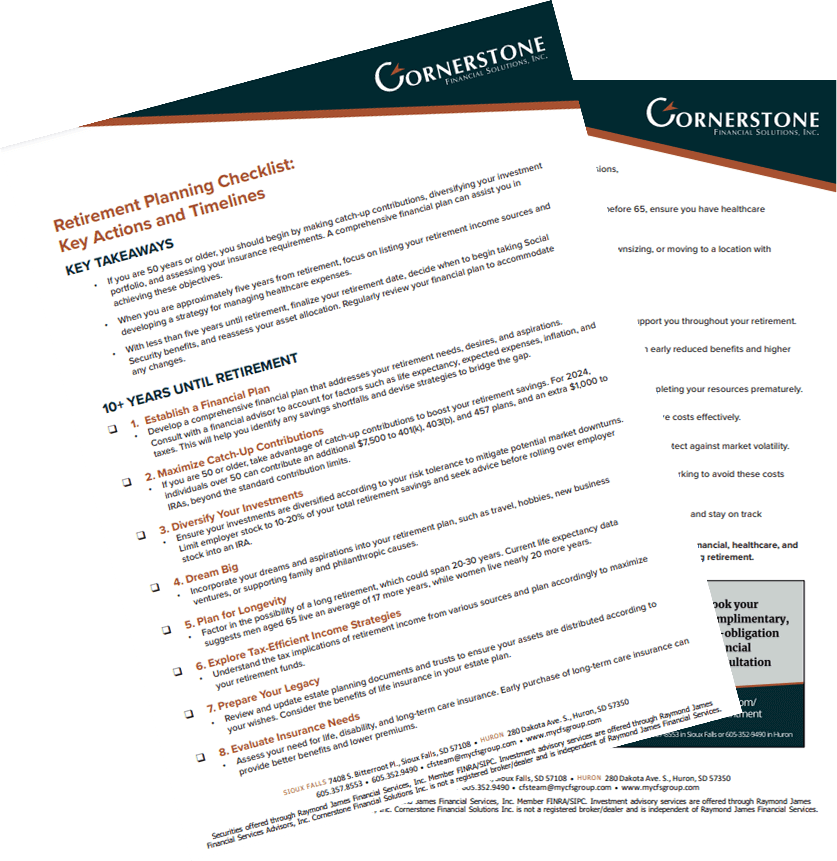WHY WORKING WITH A CERTIFIED FINANCIAL PLANNER™ PROFESSIONAL IS IMPORTANT
What is the difference between a CERTIFIED FINANCIAL PLANNER™ (OR CFP®) professional and a financial advisor?
A CFP® professional is one of many types of financial advisors. A financial advisor must earn the right to call themselves a CFP® professional
Most people think all financial planners are “certified,” but the fact is: anyone who is licensed to sell these products and give advice can use the title “financial planner.” Upon learning this, I found myself feeling disheartened – especially since I am studying to earn the CFP® designation so that I can better serve you.
A CFP® professional holds an expertise in financial and investment planning and earned their marks from the Certified Financial Planner Board of Standards, Inc.
Working alongside my fellow financial advisors, Gordon and Jill, I’ve seen how the CFP® designation sets them apart from other financial advisors in areas such as educational background, proven qualifying experience, and commitment to ethical standards. Being able to serve our clients in that way helped drive me to complete the requirements, coursework, and testing to earn my CFP® designation in 2024.
Are you working with a CERTIFIED FINANCIAL PLANNER™ professional, or looking to work with one? Here’s what you should know:
-
- What is the difference between a CFP® professional and a financial advisor?
- What percentage of financial advisors are CFP® professionals?
- Is my financial advisor a CFP® professional?
- How does a financial advisor become a CERTIFIED FINANCIAL PLANNER® professional?
- What is the CFP Board’s financial planning process?
- Is a CERTIFIED FINANCIAL PLANNER® a fiduciary?
- How can I learn more about the CFP® certification?
What is the difference between a CFP® professional and a financial advisor?
A CFP® professional is one of many types of financial advisors. A financial advisor must earn the right to call themselves a CFP® professional.
Here are a few considerations to why one might consider working with a CFP® professional.
Credentials
A financial advisor that earns the rights to use the CFP® marks shows an expertise towards financial planning, a level of professionalism, and distinguishes themselves for their clients. If working with a financial advisor with additional training in retirement planning is important to you, you may want to consider speaking with a CFP® professional.
Education
A CFP® professional is required to show a commitment towards continuing education. There is no requirement for a financial advisor to earn a college degree or receive advanced financial planning education, although all individuals licensed to sell securities or give advice must complete yearly continuing education as required by regulators and their firms. If working with a financial advisor dedicated to ongoing education is important to you, you may want to consider speaking with a CFP® professional.
Experience
While there are many financial advisors with years of experience, a financial advisor must accumulate approximately three years of work experience before using the CFP® marks.
Ethics
All financial advisors must adhere to a higher ethical standard and serve clients as a fiduciary throughout the advisory engagement. CFP Board’s Code of Ethics and Standards of Conduct reflects the commitment that all CFP® professionals make to high standards of competency and ethics. A copy can e found here: https://www.cfp.net/ethics/code-of-ethics-and-standards-of-conduct.
How can I learn more about the CFP® certification?
“CERTIFIED FINANCIAL PLANNER™ certification is the standard of excellence in financial planning. CFP® professionals meet rigorous education, training, and ethical standards, and are committed to serving their clients’ best interests today to prepare them for a more secure tomorrow.”
What percentage of financial advisors are CFP® professionals?
About 29% of financial advisors in the United States are CFP® professionals.
-
- There are approximately 612,457 registered representatives eligible to sell securities in the United States, according to FINRA. ¹
- There are 95,137 CFP® professionals in the United States according to the Certified Financial Planner Board of Standards, Inc. ²
Is my financial advisor a CFP® professional?
You can determine if your financial advisor is a CFP® professional by going to the CFP Board’s verification page.
The wealth advisors at Cornerstone Financial have committed to hold the CFP® designation or be working to complete the rigorous certification process. The CFP® designation is considered the standard of excellence in financial planning. Gordon earned his CFP® in 2000, Jill earned her certification 2016, and Andrew earned the designation in 2024.
How does a financial advisor become a CERTIFIED FINANCIAL PLANNER™ professional?
According to the CFP Board, it typically takes 18-24 months to become a CFP® professional. To become a CFP® professional, a financial advisor must meet requirements for education, exam, experience, and ethics.
Education: To satisfy the education requirement, a candidate must first earn a bachelor’s degree from an accredited college or university.
Then, a candidate must complete a CFP board education program consisting of classes focused on financial planning process, insurance, investment planning, income tax planning, retirement planning and employee benefits, estate planning, and financial plan development. Certain individuals may qualify for an accelerated education path.
Exam: To satisfy the exam requirement, a candidate must pass the CFP® exam consisting of a six-hour multiple choice exam.
Experience: A candidate must accumulate 6,000 hours of professional experience related to financial planning.
Ethics: A candidate must adhere to the high ethical and professional standards for the practice of financial planning found in the CFP Board’s Code of Ethics and Standards of Conduct. A Copy can be found here: https://www.cfp.net/ethics/code-of-ethics-and-standards-of-conduct.
What is the CFP Board’s financial planning process?
A CERTIFIED FINANCIAL PLANNER™ professional must follow the CFP Board’s seven-step financial planning process.
- Understanding the Client’s Personal and Financial Circumstances
- Identifying and Selecting Goals
- Analyzing the Client’s Current Course of Action and Potential Alternative Courses of Action
- Developing the Financial Planning Recommendation(s)
- Presenting the Financial Planning Recommendation(s)
- Implementing the Financial Planning Recommendation(s)
- Monitoring Progress and Updating
¹ FINRA Statistics as of 12/31/2021
² CFP Board Professional Demographics as of 01/01/2023
Certified Financial Planner Board of Standards, Inc. Code of Ethics
Helping you build a financial plan to achieve what’s truly possible is what we do. Empowering you to pursue greater dreams is who we are. I’d love to visit with you about your dreams. Feel free to contact our office at 605-357-8553 or email me at cfsteam@mycfsgroup.com.
Certified Financial Planner Board of Standards Inc. owns the certification marks CFP®, CERTIFIED FINANCIAL PLANNER™, CFP® (with plaque design) and CFP® (with flame design) in the U.S., which it awards to individuals who successfully complete CFP Board’s initial and ongoing certification requirements.
The foregoing information has been obtained from sources considered to be reliable, but we do not guarantee that it is accurate or complete, it is not a statement of all available data necessary for making an investment decision, and it does not constitute a recommendation. Any opinions are those of Andrew Ulvestad and not necessarily those of Raymond James.
CSP #388978 Exp. 1.17.25






